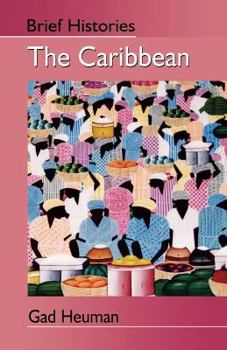The Caribbean
Select Format
Select Condition 
Book Overview
Columbus "discovered" the Caribbean, not North America, and it was in the Caribbean that Amerindians first felt the effects of European steel, gunpowder, and (deadlier by far) microbes. The region became a pawn in the European struggle for empire and, later, a significant player in the developing Atlantic economy. Its economic importance rested on a substructure of African slavery, which provided labor for the numerous plantations across the region. However, slaves resisted slavery and, ultimately, the Abolitionist cause was carried successfully, initially in the British parliament and gradually elsewhere. Emancipation did not provide solutions to the ancillary ills of servitude--poverty, exploitation, inequality--and protest and resistance to colonial rule (whether British, Spanish, French, Dutch, or Danish) continued. In the twentieth century, the United States largely replaced the old European powers as the dominant players in the area, and sought to intervene when it perceived its interests were threatened.
Format:Paperback
Language:English
ISBN:0340763639
ISBN13:9780340763636
Release Date:May 2006
Publisher:Hodder Education Publishers
Length:224 Pages
Weight:0.80 lbs.
Dimensions:0.5" x 8.4" x 5.4"
Related Subjects
HistoryCustomer Reviews
0 rating





